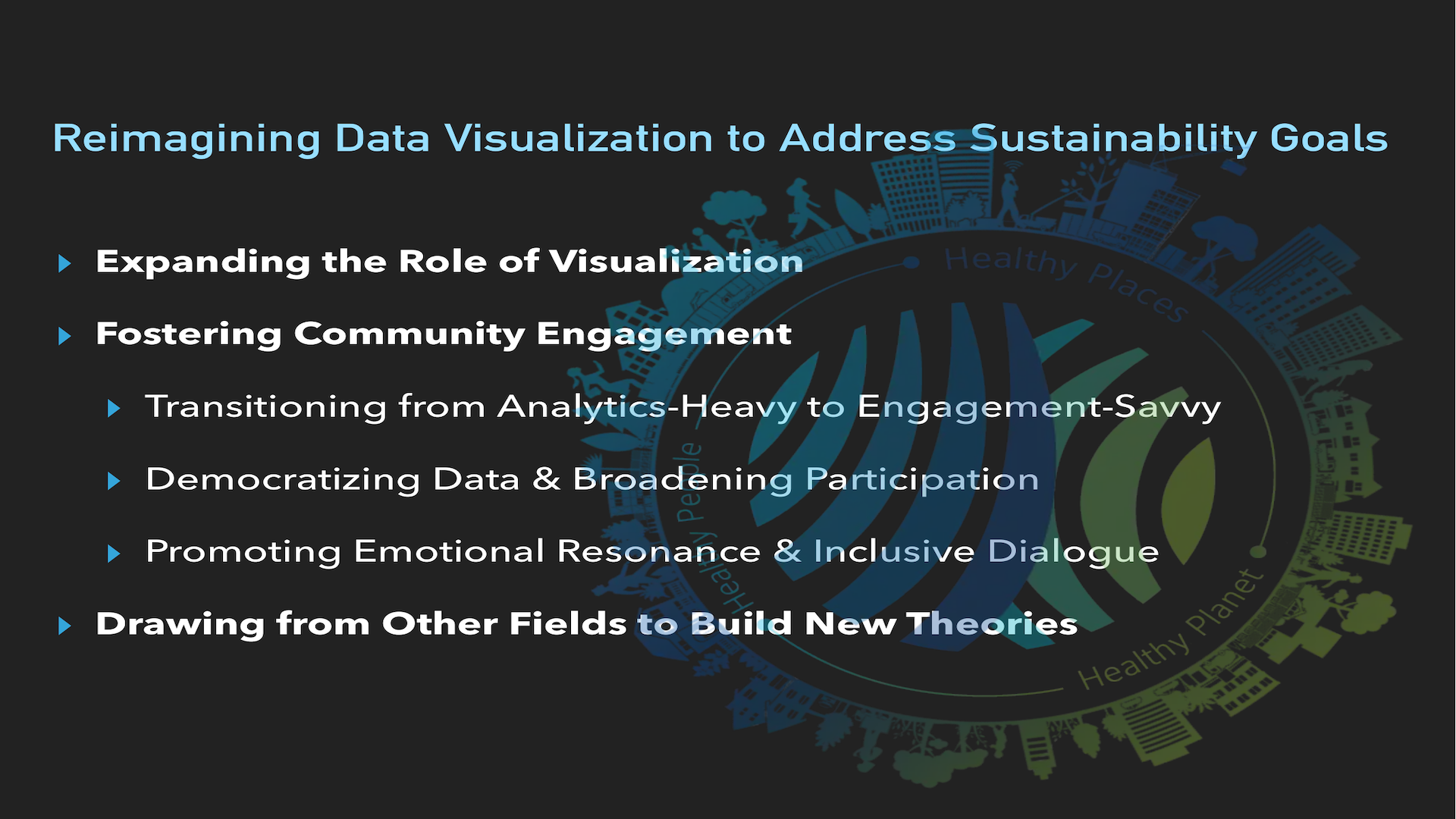Reimagining Data Visualization to Address Sustainability Goals
Narges Mahyar - University of Massachusetts Amherst, Amherst, United States
Room: Esplanade Suites I + II + III
2024-10-14T16:00:00ZGMT-0600Change your timezone on the schedule page
2024-10-14T16:00:00Z

Abstract
Information visualization holds significant potential to support sustainability goals such as environmental stewardship, and climate resilience by transforming complex data into accessible visual formats that enhance public understanding of complex climate change data and drive actionable insights. While the field has predominantly focused on analytical orientation of visualization, challenging traditional visualization techniques and goals, through ``critical visualization'' research expands existing assumptions and conventions in the field. In this paper, I explore how reimagining overlooked aspects of data visualization—such as engagement, emotional resonance, communication, and community empowerment—can contribute to achieving sustainability objectives. I argue that by focusing on inclusive data visualization that promotes clarity, understandability, and public participation, we can make complex data more relatable and actionable, fostering broader connections and mobilizing collective action on critical issues like climate change. Moreover, I discuss the role of emotional receptivity in environmental data communication, stressing the need for visualizations that respect diverse cultural perspectives and emotional responses to achieve impactful outcomes. Drawing on insights from a decade of research in public participation and community engagement, I aim to highlight how data visualization can democratize data access and increase public involvement in order to contribute to a more sustainable and resilient future.